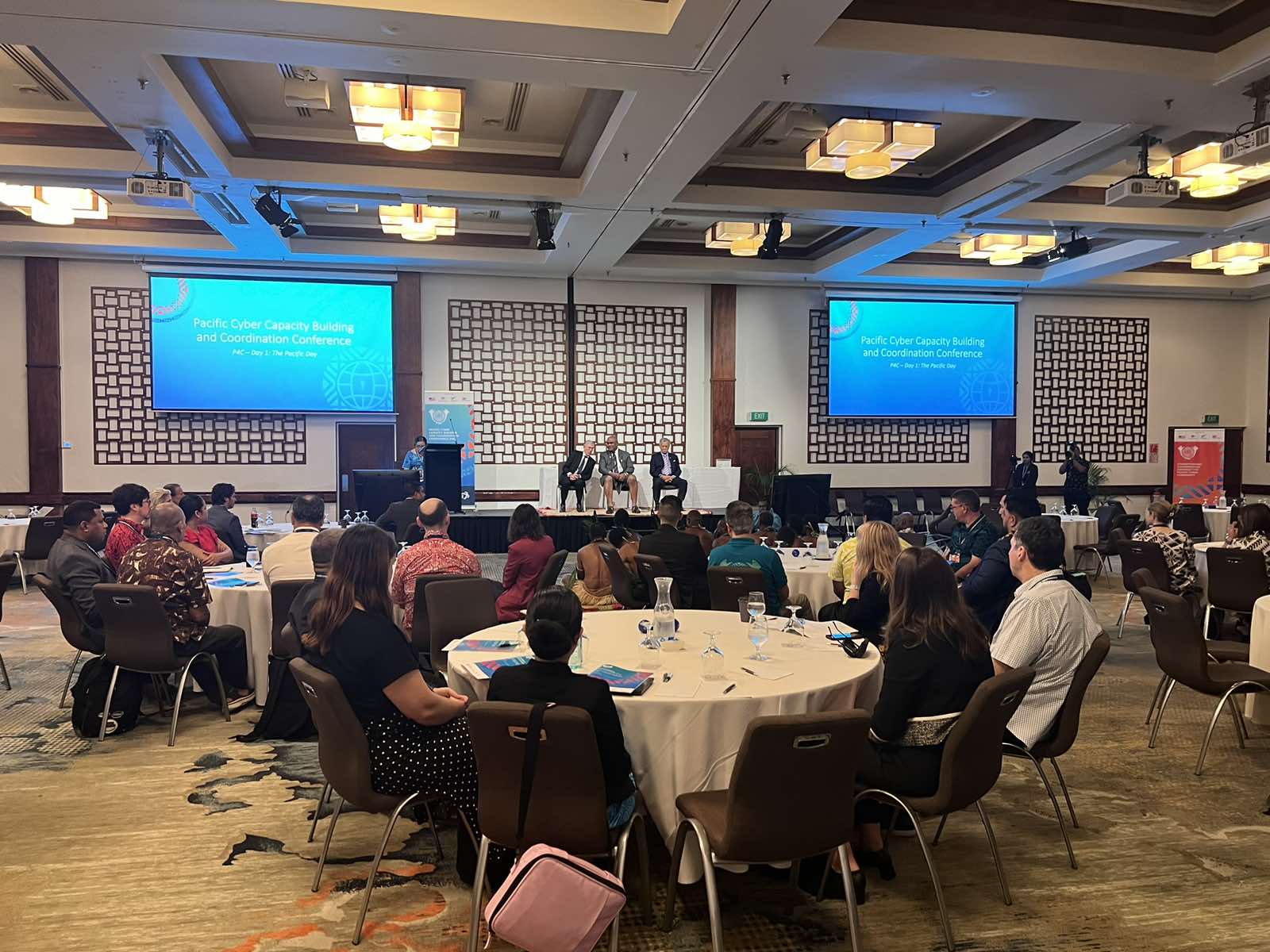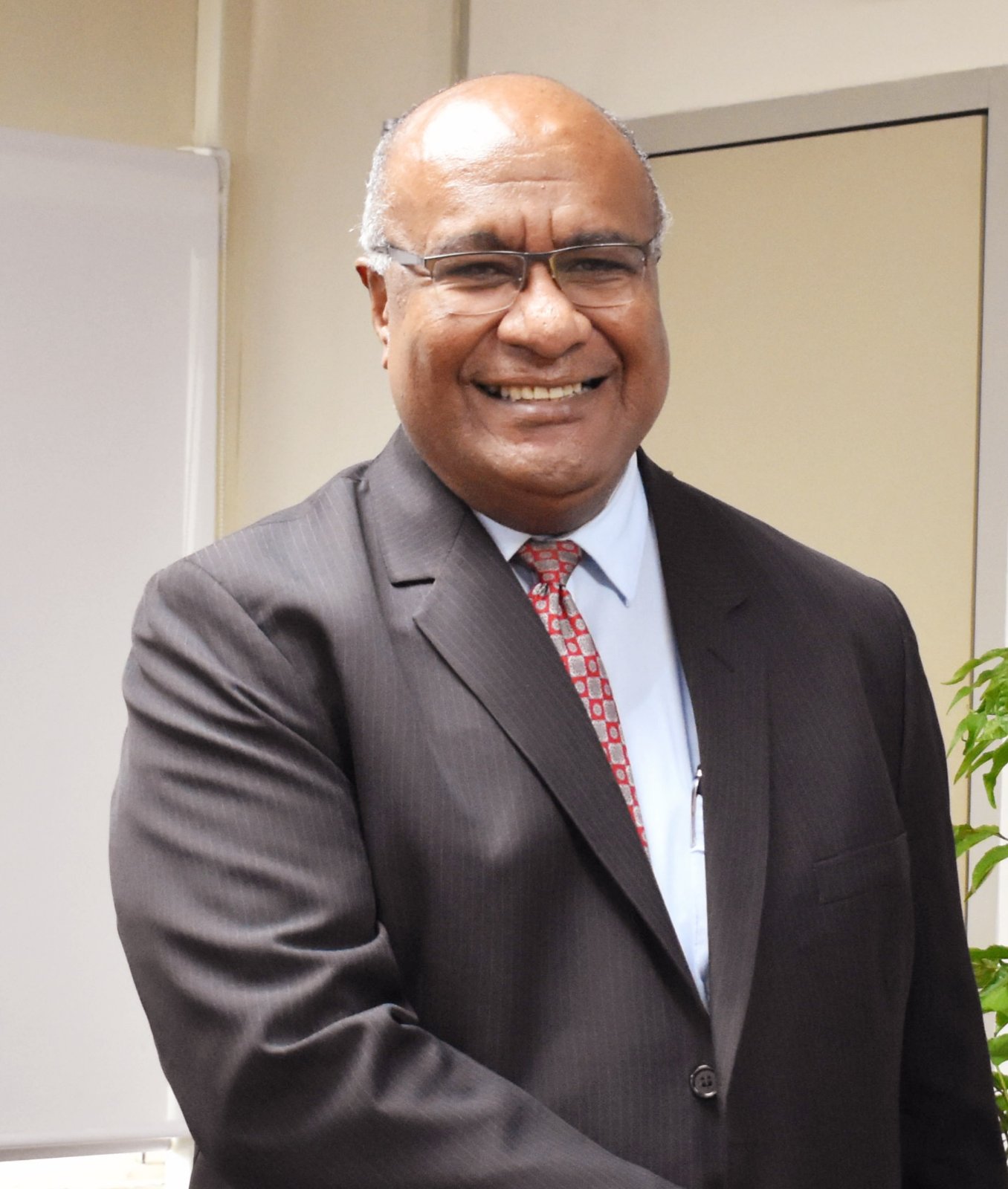President of the GFCE Foundation, Mr Chris Painter,
Australia’s Ambassador for Cyber and Critical Technologies, Mr Brendan Dowling,
Excellencies, Ladies and Gentlemen,
Bula Vinaka and a very good morning to you all.
To those visiting Fiji for the first time, welcome! While it’s been raining in Suva and Nadi lately, the sunny weather has returned just in time for your arrival, and I’m delighted to greet you in Nadi’s usual warm and sunny weather.
As the Minister that oversees cyber matters, I see how the cyber ecosystem works together from:
– Ensuring an enabling telecommunications and ICT environment;
– Providing equitable access to connectivity;
– Putting in place digital public infrastructure to drive digital transformation efforts; and
– Creating a cyber-resilient environment to combat cybercrime.
I also see that all these components require closer multi-stakeholder engagement and that we all have a role to fully realise the socio-economic development opportunities that exist and to ensure sustained financial security and prosperity. To effect this and transition into a thriving digital economy, we are currently undertaking consultations to develop a National E-Commerce Strategy for Fiji – which will lead into Fiji’s broader Digital Strategy.
Therefore, we have prioritised submarine cable connectivity through the Southern Cross Submarine Cable network expanding internet connectivity to 95 percent of our people. Our national Internet Exchange Portal has been operating since 2017 and has seen an increase in internet affordability and decrease in internet latency. Fiji is also one of the location sites for the regional internet exchange portals and I look forward to this project being fully realised.
To connect the remaining 5 percent of our people, we are working with all stakeholders to find the most suitable technology for the diverse communities. With new and emerging technologies, we see further opportunities to ubiquitously connect our people at more cost-effective pricing. We have 100 percent digital television coverage and, all these digital infrastructures have effectively brought government services closely to our people through various digitalisation efforts under the digitalFIJI flagship programme.
To build on our investments and to future-proof our collective efforts, we also need to make the necessary efforts to create a more cyber secure nation, region, and globe.
For Fiji, we enacted our Cybercrime Act in 2021 which is aligned to the Budapest Convention on Cybercrime. We are actively working on our accession to the Budapest Convention as we have received an invitation to be a party. We are close to finalising the study for our national Computer Emergency Response Team (CERT) and to establish our CERT so that we can formalise the current capabilities that exist. We have also already started working on our new National Cybersecurity Strategy to replace the 2015 National Cybersecurity Strategy.
We are also actively part of the UN Open-Ended Working Group on security of and in the use of information and communication technologies which is the only global body looking at responsible state behaviour in cyberspace. We are also seeing significant progress in increased collaboration. In fact, we have been invited to the 8th Singapore Cyber Week
which will explore the impact of digital developments on the global multilateral order, and how security can be developed to enable trust in the digital and cyber space.
As the cyber landscape is evolving, it is pertinent that the region’s priorities are considered and captured in global development. This is why regional and international representation in these global forums are crucial.
There are three main outcomes that I would like to see out of this important gathering:
Firstly, enhancing common understanding on the unique context of the various pacific island countries so that capacity building efforts are tailored as we are all at different stages of our cyber journeys. This is usually summed up in the phrase – “not-one-size-fits-all”. This conference has a crucial role to ensure that capacity building efforts are tailored to the unique needs of each country. This contributes to national, regional and global security.
Secondly, better-coordinated support that is not duplicated and with sustainability practices embedded in the designing and development of support to be given. This is critical to ensure cost-effective resource allocation and to be responsive to future-shocks. To use Fiji as an example, we are seeing fewer instances of duplication of support by multiple agencies for piece-meal support to different ministries instead of a holistic end-to-end approach which will deliver the best outcomes while minimising costs. This conference has the opportunity to properly map the needs with the required support. And I look forward to further detailed discussions on this.
Thirdly, bridging the knowledge and data gaps to ensure evidence-based policy decisions. This will build trust, investor confidence and sustainability in the efforts that are being made. This will also ensure that we are not widening the inequalities that already exist while we are undertaking our efforts. There also needs to be more Pacific/Oceania specific assessments as the usual regional assessments are the Asia-Pacific.
This conference can consolidate and share the data collected during the discussions which can also be updated on the various platforms assessing cyber developments.
As a region, our cybersecurity mandate is underpinned by the 2018 Boe Declaration and our 2050 Strategy for the Blue Pacific Continent which was launched last year. Last month, I met with fellow ICT ministries where we signed the Lagatoi Declaration which underscored the need to be united in our shared aspiration for a well-connected, prosperous and secure region. The Declaration outlines six priorities to be undertaken by member states and the Action Plan is being developed which will be reviewed in 2025. Therefore, I hope that this conference will also discuss in detail how these six priorities can be progressively implemented across the pacific region.
To conclude, I am of the firm view that this inaugural Pacific Cyber Conference needs to result in tangible, tailored and sustainable uplifting of cyber security capabilities and readiness across the Pacific by fostering cooperation, collaboration and, to share cyber security threat information, tools, techniques, and best practices toolkits which can be leveraged on.
I wish you well in your deliberations this week. Thank you and Vinaka Vakalevu



